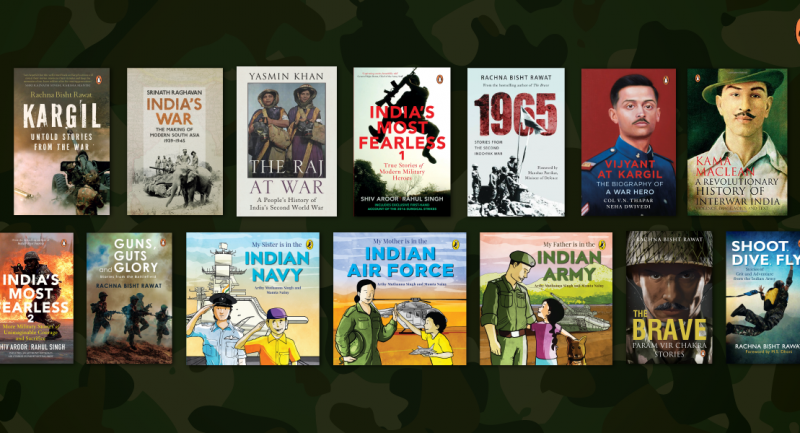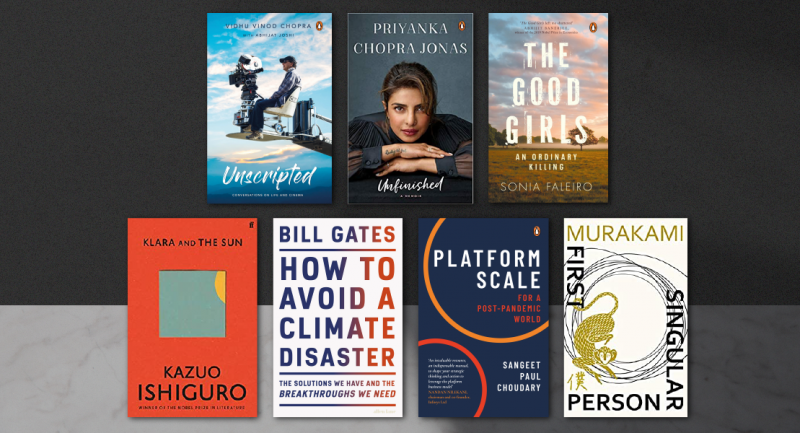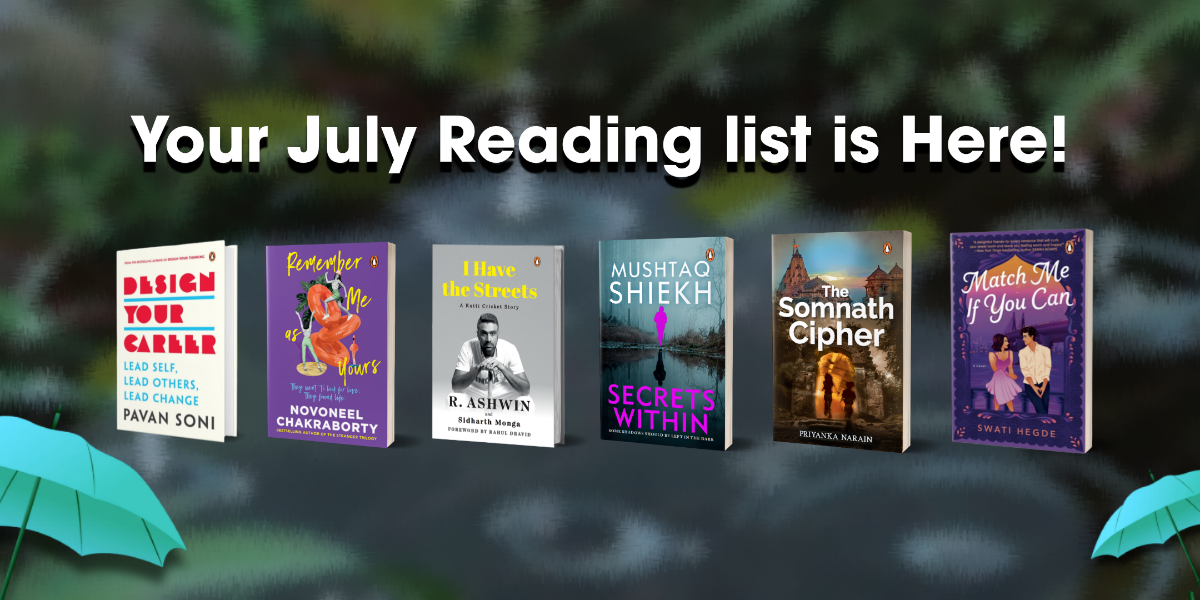
With the rain pouring outside, it’s the perfect time to snuggle up with a good book. This rainy season, we’ve got the best new books for you to enjoy. Whether you’re looking for an exciting thriller, a heartfelt romance, or an inspiring non-fiction read, our list has something for everyone. These newest reads will keep you entertained, cozy, and make the rainy days fly by. So grab a blanket, a warm drink, and dive into these fantastic new releases.
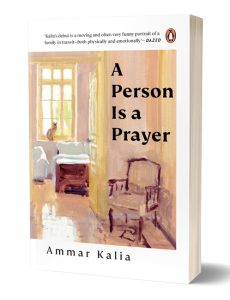
A Person Is a Prayer
Ammar Kalia
Bedi and Sushma’s marriage is arranged. When they first meet, they stumble through a faltering conversation about happiness and hope, and agree to go in search of these things together. But even after their children, Selena, Tara and Rohan, are grown up and have their own families, Bedi and Sushma are still searching.
Years later, the siblings attempt to navigate life without their parents. As they travel to the Ganges to unite their father’s ashes with the opaque water, it becomes clear that each of them has inherited the same desire to understand what makes a happy life, the same confusion about this question and the same enduring hope.
A Person Is a Prayer plumbs the depths of the spaces between family members and the silence that rushes in like a flood when communication deteriorates. It is about how short a life is and how the choices we make can ripple down generations.
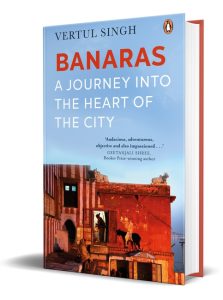
Banaras
Vertul Singh
A kaleidoscopic view of Banaras, Varanasi charts a narrative that spans from the city’s present day, to its origins as Kashi, and the fin de siècle of the eighteenth, and nineteenth centuries, which witnessed Varanasi’s inclusionary development as a cultural and pilgrimage centre, an opulent trading hub, and a basilica of political power.
Weaving facts, interesting anecdotes and untold stories to make a rich tapestry, this book is an insider’s account and an unparalleled portrait of the city.
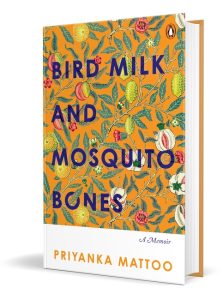
Bird Milk and Mosquito Bones
Priyanka Mattoo
Priyanka Mattoo was born into a wooden house in the Himalayas, as were most of her ancestors. In 1989, however, mounting violence in the region forced Mattoo’s community to flee. The home into which her family poured their dreams was reduced to a pile of rubble.
Mattoo never moved back to her beloved Kashmir—because it no longer existed. She and her family just kept packing and unpacking and moving on. In forty years, Mattoo accumulated thirty-two different addresses, and she chronicles her nomadic existence with wit, wisdom, and an inimitable eye for light within the darkest moments.
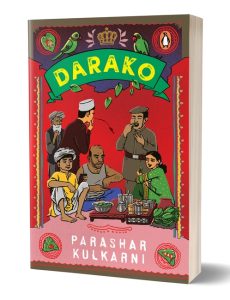
Darako
Parashar Kulkarni
Brave and funny, set in colonial India, Darako features a paanwallah and his secrets, a spitting competition that grows to be a massive affair attracting talents from everywhere, an Afghan rebel who is a star spitter and a mystic, gun-running during the freedom struggle, a daylight murder and a tangy romance amidst the utter chaos. In this world, up is down, and down is up. With laugh-out-loud moments and a clever play with language, song and history, Darako uses satire to comment on religion, identity and freedom.
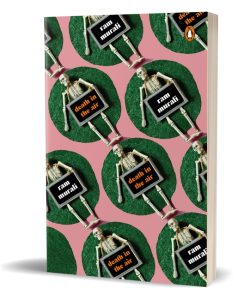
Death in the Air
Ram Murali
Samsara is the Sanskrit word for the karmic cycle of death and rebirth, after all. And as it turns out, the colorful cast of characters Ro meets—including a misanthropic politician; an American movie star preparing for his Bollywood crossover debut; a beautiful heiress to a family fortune that barely survived Partition; and a bumbling white yogi inexplicably there to teach meditation—
harbors a murderer among them. Maybe more than one.
As the death toll rises, Ro, a lawyer by training and a sleuth by circumstance, becomes embroiled in a vicious world under a gilded surface, where nothing is quite what it seems . . . including Ro himself. Death in the Air is a brilliant, teasing mystery from a remarkable new talent.
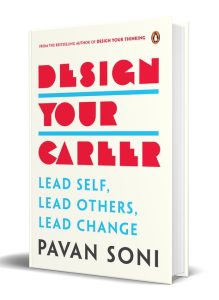
Design Your Career
Pavan Soni
Design Your Career is the distillation of Pavan’s 550 workshops at over 175 organizations across five countries where he infers that human talent is grossly underutilized. This book is a humble attempt in offering hope and clarity to individuals who feel helpless amid all the chaos and to give them the appropriate tools and frameworks to guide their careers towards fulfilment.
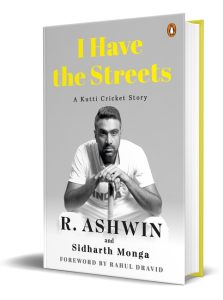
I Have the Streets
R Ashwin, Sidharth Monga
Ashwin is arguably the greatest match-winner for India in Test cricket. The fastest man to 300 Test wickets, he was a part of the team that won the 2011 World Cup in the ODI format. In T20 cricket, he has won two IPL titles and a Champions League T20. He is a feisty offspinner and more than a handy batter. But that’s only half the tale.
This nuanced portrait delves deep to paint a candid picture of a cricketer’s life before cricket—his struggles with health issues as a child, a middle-class family’s unwavering fight and determination to give him the resources he needed for a professional career in the sport, and the little joys of growing up in a cricket-mad gully.
How does a champion sportsman view the world? What drives him on and off the field? One of the more articulate and thoughtful cricketers, in this book, R. Ashwin tells his story with Sidharth Monga.
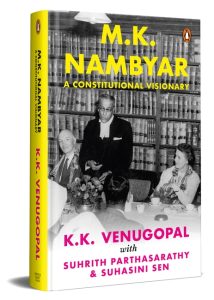
M.K. Nambyar
K.K. Venugopal
It is rare to see a lawyer from a district court occupy centre stage in the Supreme Court but M.K. Nambyar achieved this remarkable feat. Starting his practice in a district court in Mangalore, M.K. Nambyar rose to become an eminent constitutional lawyer. Written by his son K.K. Venugopal, a legal luminary himself, this biography provides a fascinating account of Nambyar’s life. It not only describes the man but also recapitulates India’s legal history from the pre-Independence era. The book includes some landmark cases argued by Nambyar that have significantly contributed to the development of constitutional law in India such as A.K. Gopalan v. State of Madras and I.C. Golak Nath v. State of Punjab, where he sowed the seeds of the ‘basic structure’ doctrine. These cases continue to guide and inspire lawyers and judges today.

Match Me If You Can
Swati Hegde
Local pub owner and cocktail genius Jaiman Patil can’t help but be enamoured with journalist/matchmaker Jia Deshpande and her meddling spirit. He’s always been an honorary part of her family, but even more so since his own moved to America. Life with the Deshpandes is chaotic and loud, but it’s also more loving than anything he experienced growing up, and he wouldn’t risk losing that for the world. It feels manageable—until his pub begins to struggle and his long-hidden feelings for Jia grow deeper.
When Jia’s attempts at office matchmaking go haywire, risking new friendships and her relationship with Jaiman, she must reevaluate her own thoughts on love. For the first time, Jia Deshpande realizes that love may be a lot more complicated than she thought. Luckily, happily-ever-afters are never in short supply in Mumbai.

Remember Me As Yours
undefined
Nityami Thakur hails from Bhopal and only has a simple request from life: that she get a man who loves her as unconditionally and loyally as she would. But her pursuit of this simple wish has landed her on a journey where every man she meets only punctures her confidence, convincing her that perhaps she is not good for anybody. Sick and tired of window-shopping for Mr Right, Nityami gets to know that her first love from school is somewhere in Sikkim. And that he has recently broken up. With renewed hope and the desire to take a break from her messy present, Nityami decides to take a road trip to Sikkim.
Falak Sultana hails from New Delhi and is a born fighter. Coming from a broken home with an abusive father, she worked hard to not only set up her own small food delivery service but, unbeknownst to her family, to also pursue an MBA, aspiring to bigger life goals. Her only friend is her stepmother, who is her age. Just when Falak thinks her life is finally aligning with her dreams, she ends up doing something drastic, which makes her run for her life. And she reaches Sikkim.
When the two girls find themselves, coincidentally, in the same cab, they feel the company would be good for the road trip ahead. But little do they know whom destiny has kept in store for them. Someone who had changed their lives when they had first met, and will once again alter their lives.
Remember Me As Yours is as much a fast-reading romantic comedy, as it is a poignant coming-of-age tale of two girls who find themselves singled out by society and are desperate to make sense of their personal losses.
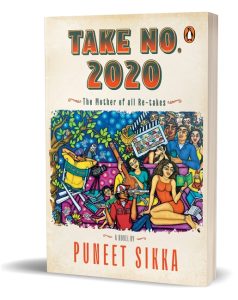
Take No. 2020
Puneet Sikka
Meera has just landed her first big Bollywood film after years of struggling, loneliness and despair.
For Dabloo, who is fighting to make ends meet, this year has brought both the lowest and highest points of his career.
Aspiring TikTok star Jayesh, unlucky in love and films, might just discover his métier the hard way.
Embroiled in #MeToo allegations, the puppet master of the casting couch, Micky Taneja, might be able to find his true love and work again.
As the paths of these strugglers collide, broken relationships give way to unexpected ones, projects are found and lost, and repressed pasts resurface in their shiny new lives. In the face of a real-life climax, each is forced to reckon if they’re the hero or villain of their own story.
A smoke-and-mirrors story decked in acerbic humour and grief, Take No. 2020 is a story within a story, where reality is nothing except what you believe in.

Secrets Within
Mushtaq Shiekh
In the shadow of opulence, ambition can be a dangerous driving force. Aakash, a visionary architect, finds himself with the chance of a lifetime—a contract that could crown his career or crush it. The job? To build and redesign a mansion for Mr Khanna, a man whose riches are only matched by his secrets. Aakash’s path to success is paved with temptations when he crosses paths with the enigmatic Maya, Mr Khanna’s wife, whose eyes hold stories yet to be told.
Dive into Secrets Within, where the scent of scandal is as intoxicating as the allure of power. Here, every corner turned could be a step towards an empire or a slip into an abyss, and every face masks a secret dying to break free.
Will Aakash be able to navigate this treacherous maze to emerge victorious or will he become a casualty of his unchecked desires?
Behind the gates of the Khanna mansion, a game of deceit beckons, where the price of truth may be too perilous to pay.
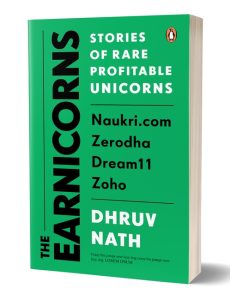
The Earnicorns
Dhruv Nath
These are stories about phenomenal companies and their equally phenomenal founders. How Zoho transformed rural Tamil Nadu, by recruiting young boys and girls who could not afford to go to a decent college. And nurturing them into becoming star programmers. Nithin Kamath, the outstandingly humble founder of Zerodha, who shocked the nation by charging absolutely no brokerage from investors. Sanjeev Bikhchandani, who started Naukri.com from the servant’s quarters above his father’s garage, using second-hand computers and furniture. And subsequently, grew the business to a point where they have an unbelievable 70 per cent share of the market for white-collar jobs. Harsh Jain of Dream11, who built a roaring fantasy sports platform when everyone advised him not to.
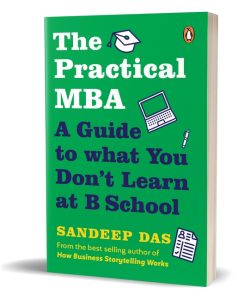
The Practical MBA
Sandeep Das
The Practical MBA aims to help you get a valuable MBA education, i.e. what you should be taught in business schools. It discusses various topics like entrepreneurship, self-help, technological disruption and financial literacy. This holistic guide breaks down various day-to-day business concepts such as pricing, inflation, GDP, statistics and so on. It also provides a glimpse of industries—FMCG, consulting, e-commerce, banking—to help you understand their cultures and demands.
With career-related advice on creating an impactful resume and acing various rounds of job selections, this book provides you with the secret sauce that will help you land the job you want.
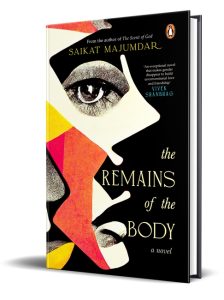
The Remains of the Body
Saikat Majumdar
The Remains of the Body is an intricate story of friendship and intimacy between three Indian immigrants in North America from a writer known for his exploration of the unpredictable nature of human sexuality.
Two men in their mid-thirties, childhood friends, share a deep bond that is put to an unexpected test as one’s marriage starts to crumble under the conflicting arcs of immigrant ambition. As the marriage loses its last breath in an unexpected affair, the other friend, a single man, has to confront questions about his own desire that he cannot answer. Whose body does he long to touch? Can a man’s intimacy with a woman mask his inexpressible desire for someone who lies beyond his reach?
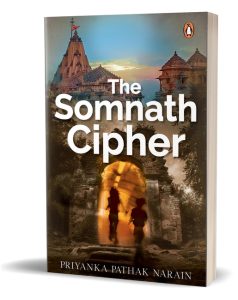
The Somnath Cipher
Priyanka Pathak Narain
When a Somnath University professor sends a desperate plea for help, journalist Pia Jani and her childhood friend Aditya Narayan are pulled into a battle of wits and stealth to unravel a millennium-old mystery.
As the duo deciphers intricate clues and cracks baffling codes, they unearth a trail leading back to the day the Somnath Temple was plundered by the infamous Mahmud of Ghazni—and the staggering truth of what really happened.
Stalked by a faceless, merciless adversary who outmanoeuvres their every move, they must race against time before an explosive secret is lost forever in the annals of history.
Da Vinci Code meets Indiana Jones in this exhilarating and unputdownable read through India’s history, ancient cults, symbols and religion.
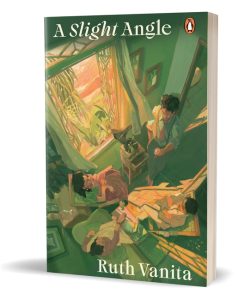
A Slight Angle
Ruth Vanita
In the volatile India of the 1920s, with its many political and technological crosscurrents, we encounter a group of young people in Delhi, Bombay, Calcutta, Banaras, discovering new ways to live. Fiery Sheela, once a Gandhian, charts her own path; clever Kanta and orphaned Hemlata make the most of their limited resources; gentle and gifted Sharad and Abhik grapple with forbidden desire and redefine older arts; Robin the jazz musician and Rita the Jewish movie star construct urban pleasures. Hindi writers Mahadevi and Ugra make cameo appearances.
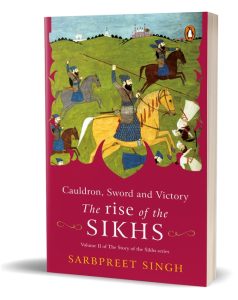
Cauldron, Sword and Victory
Sarbpreet Singh
In Cauldron, Sword and Victory, author Sarbpreet Singh takes the reader on a journey through the fiery crucible in which the character of the Sikhs was forged. Seers and mystics, conquerors and kings rub shoulders in this heady tale of history and politics, embarking on never-ending quests for land, power and glory. Singh’s first volume on Sikh history told the story of the venerated Sikh Gurus. Starting with the rebellion of Banda Singh Bahadur, he now turns his attention to Nawab Kapur Singh and his cohort of doughty Sikh chiefs who became the masters of Punjab as the weakened Mughals of Delhi clashed with the powerful Ahmad Shah Abdali of Afghanistan. Bringing these swashbuckling characters to life in a manner most vivid and compelling, Singh transports us to the eighteenth-century Indian subcontinent as the Sikh chiefs engage with the British, the Marathas, the Jats and the Rohillas, sometimes as allies and sometimes as adversaries.
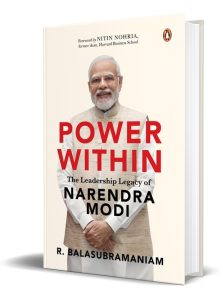
Power Within
R. Balasubramaniam
Western thought on leadership is trait-oriented; it emphasizes the importance of ‘being a leader’. Indian leadership offers a contrast—it focuses on the ‘exercise of leadership’. Power Within introspects on this practice as it captures the civilizational wisdom of Bharat through the lived experience of Prime Minister Narendra Modi. The book delves into the fifty years of his public life and explores how he discovered his purpose, the seeds of which were sown in his formative years. Poignant anecdotes from his colleagues shed light on how his relentless hard work and communicative approach propelled him to the prime ministerial post. They also underscore his constant quest for self-discovery in the service of others.
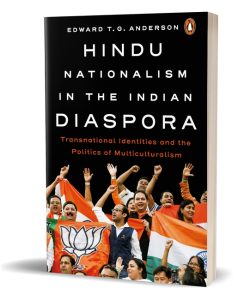
Hindu Nationalism in the Indian Diaspora
Edward T. G. Anderson
Hindu Nationalism in the Indian Diaspora explores how and why the movement became popular among India’s diaspora from the second half of the twentieth century. It shows that Hindutva ideology and its plethora of organizations have a distinctive resonance and way of operating overseas; the movement and its ideas perform significant, particular functions for diaspora communities.
Edward T.G. Anderson argues that transnational Hindutva cannot simply be viewed as an export: this phenomenon has evolved and been shaped into an important aspect of diasporic identity, a way for people to connect with their homeland. He also sheds light on the impact of conservative Indian politics on British multiculturalism, migrant politics and relations between various minority communities.
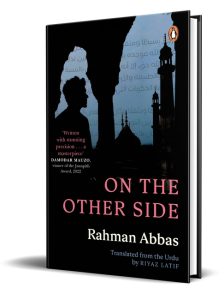
On the Other Side
Rahman Abbas
Abdus-Salam Kalshekar’s only aspiration was to publish his Dastan-e-Ishq, a seven-volume ‘Saga of Passion’, before his death. While Salam could only complete three volumes, an author sets out to write a novel about Salam, unveiling the fifty-three diaries about the latter’s past amours that consume the saga. It also reveals a certain beloved whom Salam could never bring himself to write about. While Salam’s life unfolds a world that is riddled with patriarchy, caste prejudice, religious intolerance and exploitation in the name of faith, the deeper conflicts of love and abandonment are revealed in this expertly crafted narrative, now available in an English translation.







